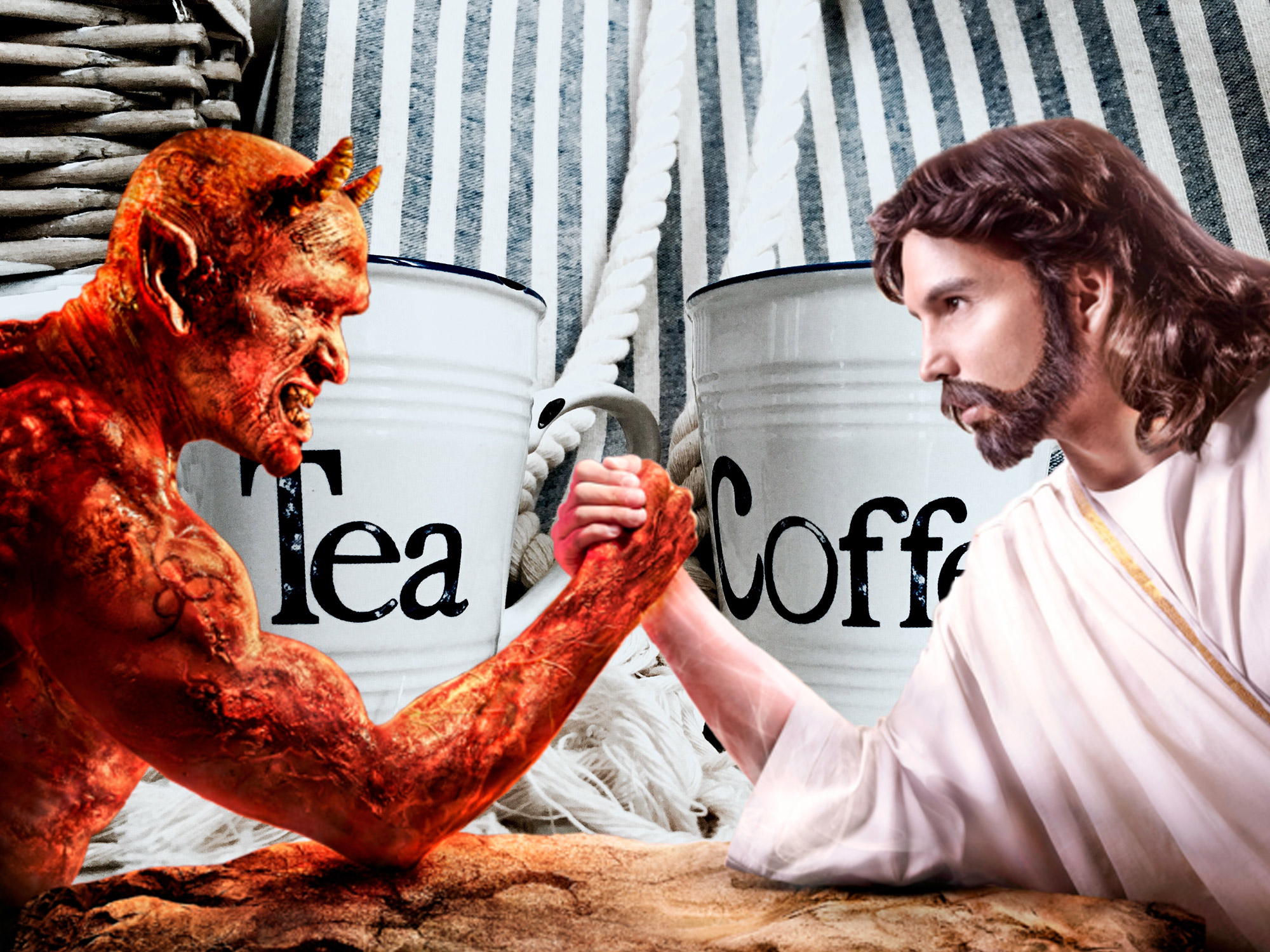We’ve all heard the old chestnut that tea contains more caffeine than coffee, but is it true or false? The answer is that it is both true and false at the same time. We should explain.
Before it is brewed, a tea leaf typically contains about 2-3 times as much caffeine as a coffee bean. Once you compare the average caffeine content of a cup of tea and a cup of coffee, however, coffee wins hands down with approximately twice the amount of caffeine than black tea.
What about different kinds of tea and coffee, eh, eh?
Keep your knickers on, tiger. Perhaps you should be cutting down on caffeine. Not all coffee is created equal. Fine ground coffee as you might use in a high-pressure espresso machine will yield five times more caffeine per ml than coarse ground coffee from a French press. But, unless you double-shot your way through the day, your caffeine intake from a 30ml espresso will be less than a full mug of French press brew.

There are differences, also, in tea brews – from the cup of tea that your partner drinks, where, ideally, a tea bag is wafted over the cup in a less-than-vigorous fashion, to Yorkshire builders’ tea that looks as though it has been drained from the engine of a rusty Transit van.
The secret of soap opera tea
Whenever there’s a soap opera crisis brewing, the aftermath will always feature a pot of tea. There’s a lot of truth in the observation that a nice, hot cup of tea will put the world to rights. Tea contains its own stimulant, L-theanine, said to help ease stress and anxiety as well as reduce insomnia. Sipping on a fresh cuppa really can be relaxing. A study even found that people who experienced higher blood pressure discovered L-theanine helped reduce the increase in blood pressure. And because L-theanine stimulates without raising cortisol, the body’s natural stress hormone, the way that coffee does, tea can even help you sleep more soundly. The welcome surprise is that tea’s L-theanine is not removed by decaffeination. Decaf can still be used to dramatic effect after your pub landlord has gone postal with a baseball bat, the hospital has exploded, or there has been a murder or similar feature-length episode of festive trauma and ill-will.
Apart from L-theanine, your decaf cuppa also contains plenty of antioxidants which may well lower the risk of diabetes and strokes, as well as combat free radicals and slow the wear and tear on your DNA. Any tea is a healthy choice because of its antioxidants, but herbal teas that are naturally uncaffeinated are the best choice of all. As far as drinks are concerned, only tea made from the leaves of the tea plant camelia sinensis contain L-theanine, but a cup of chamomile is a great aid for restful sleep, well known, as it is, for its relaxing effects.
To find out more about I Love Decaf’s teas and herbal teas, look around our online shop.

